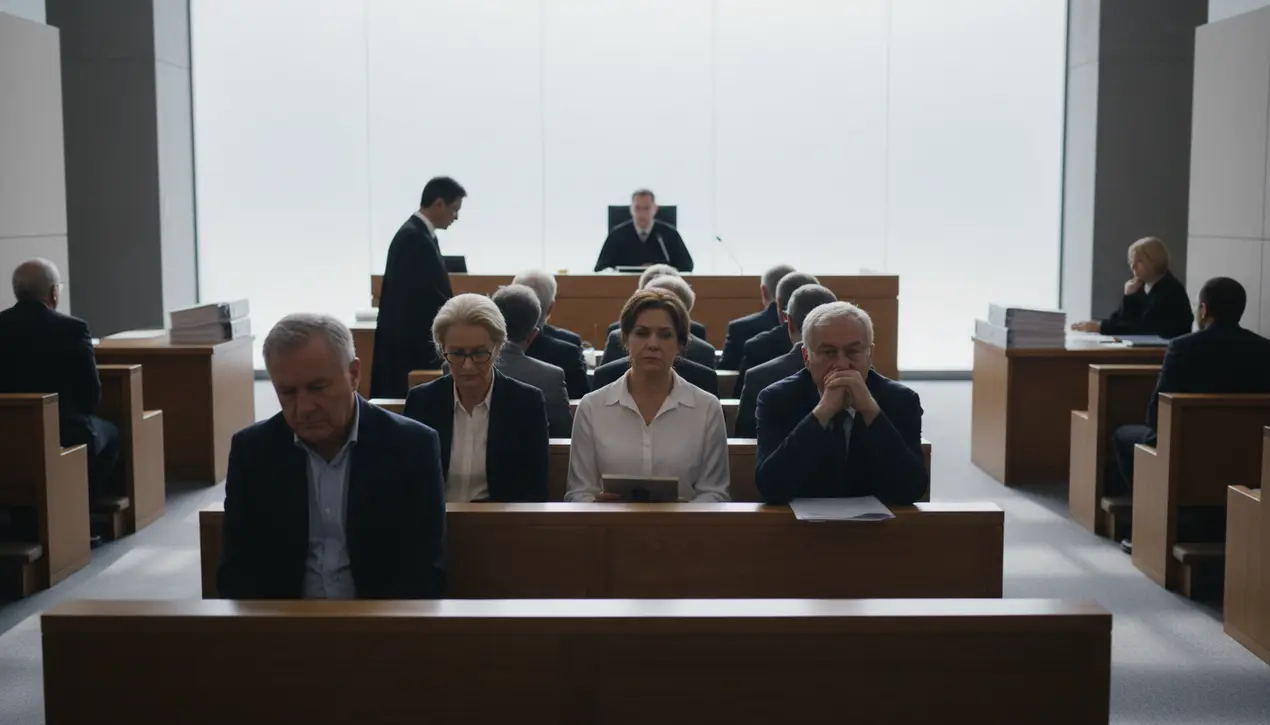
Otherlaw & courtsCorporate Litigation
Purdue Pharma opioid settlement plan nears approval in court.
RO
Robert Hayes
2 hours ago7 min read2 comments
In a development that echoes the historic accountability faced by industries from tobacco to asbestos, the long, tortuous legal saga surrounding Purdue Pharma and the Sackler family appears to be reaching its final, contentious conclusion. A federal bankruptcy court is now poised to approve a monumental settlement plan, a move supported by a near-unanimous chorus of plaintiffs ranging from municipalities and Native American tribes to individuals whose lives were fractured by addiction.This judicial endorsement would effectively close a landmark chapter in the national opioid litigation, a sprawling legal battle seeking to assign responsibility for a crisis linked to over 900,000 American deaths since 1999. The hearing before U.S. Bankruptcy Judge Sean Lane represents the culmination of six years of complex proceedings, a period during which claims against the company ballooned into the trillions, pitting the stark demand for justice against the pragmatic, often cold, mechanics of bankruptcy law.This latest arrangement arrives after the U. S.Supreme Court decisively rejected a prior version, ruling it improper to grant the Sacklers, who have not personally filed for bankruptcy, sweeping immunity from future opioid lawsuits. The revised framework attempts to navigate this constitutional hurdle by allowing entities to opt out of the settlement and preserve their right to sue the family, though this is a right fraught with practical difficulty given the billions of Sackler assets shielded in opaque offshore trusts.The current consensus stands in stark contrast to the earlier, more fractious negotiations. This time, opposition from the vast pool of over 54,000 personal injury claimants has been remarkably subdued, with a mere 218 voting against the plan, though a significant number abstained from voting altogether.Yet, the courtroom has not been entirely silent. Emotional, sometimes disruptive, objections have pierced the procedural decorum, with voices like Pamela Bartz Halaschak of Florida invoking the 'natural laws of karma' and Laureen Ferrante of Staten Island decrying the paltry sums—estimated at $8,000 to $16,000 before legal fees—allocated to victims as an insulting pittance.The settlement itself ranks among the largest in the opioid litigation landscape, which has collectively extracted roughly $50 billion from various players in the pharmaceutical supply chain. The Sacklers are required to contribute up to $7 billion and relinquish control of Purdue, which will be rebranded and its future profits directed toward abating the opioid epidemic.Beyond the financial penalties, the deal imposes profound non-monetary conditions, compelling certain family members to exit the global opioid trade and, in a symbolic blow to their legacy, permanently barring the use of the Sackler name on charitable institutions, a name already stripped from museums and universities worldwide. Furthermore, a trove of company documents, including those typically protected by attorney-client privilege, is slated for public release, potentially offering a damning, definitive public record.While the majority of the funds are earmarked for government-led mitigation efforts, this settlement is unique in directly compensating individual victims, setting aside approximately $850 million, with over $100 million specifically for children born with opioid withdrawal. As overdose deaths show a recent, tentative decline—a trend experts partly attribute to the influx of settlement dollars—this agreement may mark a turning point. Yet, for many, it remains a deeply imperfect resolution, a complex transaction where the scales of justice were balanced not in a courtroom of public opinion, but in the calculated arena of bankruptcy, leaving a legacy of devastation only partially addressed by a multibillion-dollar price tag.
#Purdue Pharma
#opioid settlement
#Sackler family
#bankruptcy court
#OxyContin
#victims compensation
#lead focus news
Stay Informed. Act Smarter.
Get weekly highlights, major headlines, and expert insights — then put your knowledge to work in our live prediction markets.
Comments
Loading comments...
© 2025 Outpoll Service LTD. All rights reserved.